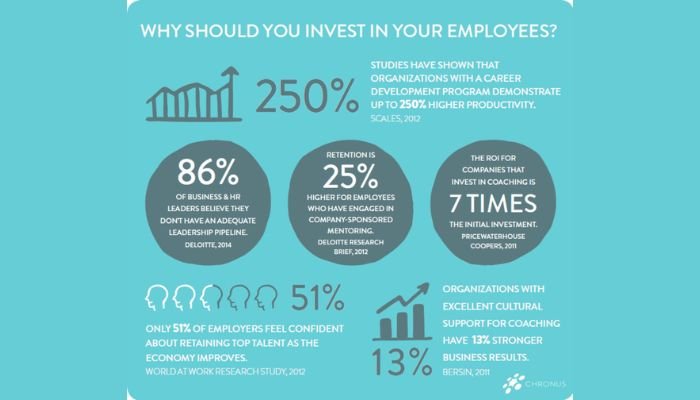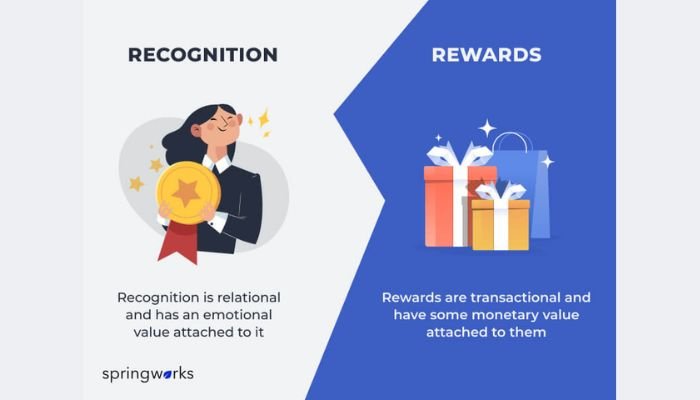6 Essential Factors to Attract Top Talent

In today’s competitive job market, attracting top talent has become increasingly important to businesses of all sizes.
To ensure they have the best and brightest around them, employers need to look beyond purely offering a competitive salary package. There are several additional factors required in order to attract the kind of employees that can help drive their success forward.
This article will explore seven essential components for drawing in the finest professionals — from workplace culture and opportunities for growth and development, through to recognition, rewards and providing meaningful work. By implementing these practices within their organization, companies will be better equipped to secure top-tier talent into the future.
Company Culture

Company culture encompasses an array of internal elements, from workplace values and mission to goals, management structures, organizational principles, employee engagement, decision making processes and other workplace policies.
The collective aspects that make up a firm’s cultural norms have an influencing impact on an employee’s overall morale in the office as well as satisfaction level with their work duties.
A strong and encouraging environment made up of the culture that supports growth holds immense worth when attracting talent into your niche field.
Having cultural connectivity among team members collectively allows firms to leverage efficiency within business strategies which can be used as yet another attraction tool when trying outgrowing competitors.
Examples of positive company cultures that attract top talent
Examples of positive company or office cultures that attract top talent include embracing diversity and inclusion, creating open and honest conversations between management and employees, offering flexible scheduling for work-life balance or remote working arrangements to accommodate specific needs, as well as hosting social activities that bring the entire team together.
Companies like Google have famously cultivated a positive culture by maximizing creative expression with openness to share ideas among teams through brainstorming sessions while providing tangible rewards for innovation.
Netflix has also created an effective cultural pillar based on excellence known as ‘Freedom & Responsibility’ which lays out core values to ensure talented professionals achieve extraordinary success in the workplace environment.
Strategies to develop a strong and appealing company culture
Developing a strong and appealing company culture is essential for attracting top talent in today’s competitive job market. Key strategies include:
- Creating clear values
- Encouraging open dialogue and feedback
- Cultivating compassion with coworkers and clients/customers
- Offering meaningful rewards that go beyond financial compensation
- Transparent communication within the organization
- Being flexible to employee needs outside of work- hours/days if possible while still meeting organizational objectives and safety protocols.
Additionally, organizations should show transparency in their goals targeting sustainability projects which create an incorporation of purpose and having discussions on value outputs are needed. Establishing these actions create larger motivation to employees from a sense physical as well as mental balance and encourages enthusiasm.
Opportunities for Growth and Development

Providing growth opportunities for potential employees
When employers are competing to attract and retain the best talent, providing meaningful growth and development opportunities can be critically important.
Opportunities for professional growth enable potential employees to reach their career goals, which strategically makes a company more attractive and appealing to job seekers.
Employers should succeed in creating an environment that fosters personal and career growth through mentoring programs, training initiatives, clearly defined career paths, or other organizational learning structures.
This will allow companies to gain trust and appeal as preferred employer—contributing productivity while retaining the top applicants who deliver extraordinary results.
Mentoring programs, training initiatives, and career advancement prospects
Providing opportunities for growth and development is essential to attract top talent. Utilizing mentoring programs, specialized training initiatives, and organized career advancement paths can all provide employees with the resources they need to further their careers without having to search elsewhere.
By properly investing in the growth of staff members, companies can cultivate experienced experts who are deeply rooted in an organization’s culture and values while also positively competing against other employers within their industry.
Meaningful development opportunities create in conjunction with a supportive company culture can have a lasting effect on employee morale, satisfaction and performance.
Work-Life Balance

Work-life balance for modern professionals
Work-Life balance has increasingly become an important factor for attracting modern professionals.
In today’s climate, employers must consider how they are able to provide employees with the flexibility and balance to ensure their professional goals and everyday commitments are managed well.
Strategies such as increased remote work options, flextime, unlimited vacation days and other similar arrangements provide high level of engagement amongst talent pool considering a new opportunity.
Ultimately, the key goal is to promote a positive working environment that does not require people to sacrifice either their personal or professional lives and thereby maximize growth potential amongst the entire workforce.
Strategies to promote work-life balance within the organization
Organizations should consider introducing flexible working options such as work from home, flex-time and favorable leave policies to promote a healthy work-life balance. Employers need to involve their team in deciding the boundaries regarding work hours, holidays and vacation periods.
Additionally, leading by example is essential; encouraging career breaks or reducing stress levels through mindfulness activities are just some of the strategies organization leaders can implement. Comprehensive perks like health member benefits might also serve to incentivize employees towards a better state if corporate well-being.
Real-life examples of companies implementing work-life balance initiatives
Many companies are embracing their roles in promoting healthy work-life balance within their organizations.
Facebook, for example, offers employees unlimited paid time off to dedicate to things they’re passionate about and provides stunning shared workspaces in downtown offices around the world.
Apple provides educational programming focused on staying balanced and realizing personal aspirations as employees progress throughout their careers. Microsoft incentives a regular schedule contribution where team members may take up to three days off at any time with approval from managers.
Flexible Work Arrangements

The rising demand for flexible work arrangements
Employers are quickly starting to realize the benefits of Flexible Work Arrangements. With the rise of technology, changes in workplace trends and productivity expectations, more employees – particularly from Generation Xers and Millennials – are seeking options other than a nine-to-five static job structure for better work/life balance and greater convenience.
For employers, these flexible working arrangements can help bolster recruitment efforts by providing competitive packages while still meeting business needs.
Along with various studies showing great ROI in higher retention of customers and staff as well as stronger morale and company loyalty among existing personnel, there’s no question that Flexible Work Arrangements should be explored extensively by companies to attract today’s top talent.
Advantages of flexible work options for attracting top talent
Flexible work arrangements can be an effective tool for attracting top talent. Many entrepreneurs, professionals, youth and older adults desire more control over their working hours and how, when, and where they perform their tasks.
These options allow individuals to create a job that fits into their lifestyle objectives while still allowing them to contribute positively to the organization.
With flexible work options such as remote work, flextime or compressed schedule benefits will minimize commuting time can also encourage innovative employees who have special needs such as caring life demands often taken for granted.
Consequently organizations that offers flexibles arrangements can consequently benefit from improved customer satisfaction and workers morale alongside the corporate success driven by both employers & employees alike.
Recognition and Rewards

The power of recognizing and rewarding employees for their contributions
Recognizing and rewarding employees for their contributions can be a powerful motivational tool. Employee recognition and rewards can come in many forms – from verbal compliments or praise, to monetary bonuses or awards.
A well-defined recognition and rewards system signals appreciation of employee accomplishments; an effective strategy can build employee morale, engagement, pride and loyalty.
Companies who recognize their employees for hard work ultimately benefit from increased job performance, retention rate, productivity and overall staff happiness.
Different types of recognition and rewards programs
When it comes to recognizing and rewarding employees for their hard work, there are a variety of options for managers and leaders. These may include monetary recognition bonuses, awards or certificates presented at special employee events, time-off such as rewards days off from work or extended paid vacation trips.
Companies may also offer discounts on company services or products to their loyal staff as well as give preference in career advancements which helps promote job satisfaction and motivation within the workplace.
Recognition programs should also strive to be emotionally rewarding—such as public thanking of workers who go above expectations—so that both employee dedication and morale continues to improve over time.
Purpose and Meaningful Work

The growing desire for purposeful and meaningful work among employees
The modern professional is increasingly driven by the need for meaningful and purposeful work. Therefore, companies should actively demonstrate the social and environmental impact of their company to attract top talent.
Aligning an organization’s mission and values with those of their future hires goes a long way in employee satisfaction and retention rates. Priding your employees on giving back can come in many forms be that sponsoring education or events focused around activities that give something positive back the local community.
Companies should use these experiences as a chance to show potential new hires how they allow popular notions to become reality within everyday working life.
Aligning company values and mission with employee aspirations
Purpose and meaning in work is a growing priority among employees today, as many individuals are increasingly keen to use their professional skills for a noble cause. Companies can leverage this by aligning their internal values and mission statement with the expectations of prospective employees.
Making sure that the company’s goals are relatable to its intended audience shows tangible proof that it cares about the greater good in some way or another-it gives promise of making an impact too important to ignore.
After all, motivated employees come from organizations driven by purpose and meaningful work; all satisfying a collective pursuit of something bigger than any one individual alone.
Conclusion
Incentives such as competitive salaries are essential for recruiting and retaining top talent, but there is also a need to cultivate and nurture an engaging work environment. Companies must ensure they prioritize company culture, career advancement opportunities, work-life balance, flexibility, recognition and rewards.
Employee development and meaningful impactful work should not be undermined either so providing clarity about the direction of the company is crucial so that employees furthermore can find purpose in their professional roles.
Organizations must focus on these essential seven factors to optimize their recruitment process structure and establish themselves as attractive employers of choice.
- Mastering Internal Mobility: A Comprehensive Guide to Success - August 10, 2023
- Effective Recruiting Strategies in a Competitive Sales Labor Market - July 27, 2023
- 6 Essential Factors to Attract Top Talent - July 19, 2023
